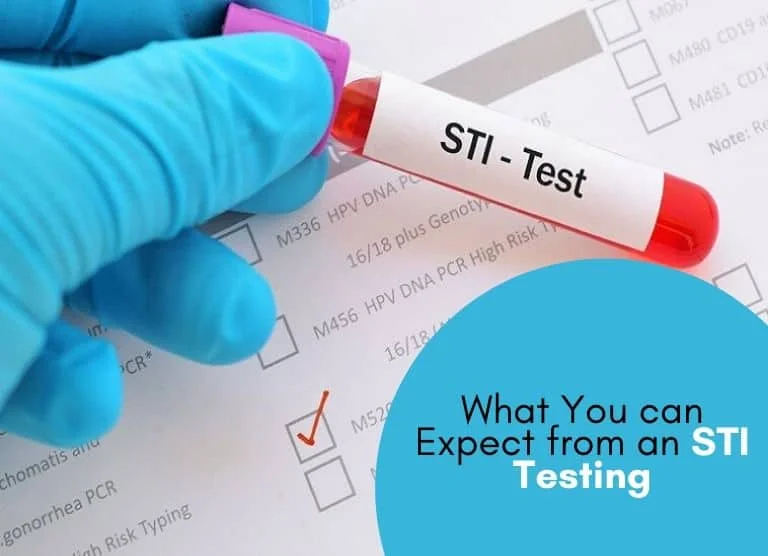
Monday to Friday 9:00 AM - 6:00 PM
Saturday to Sunday 10:00 AM - 2:00 PM
 Book Appointment
Book Appointment

Monday to Friday 9:00 AM - 6:00 PM
Saturday to Sunday 10:00 AM - 2:00 PM
 Book Appointment
Book Appointment

Sexually transmitted infections are quite common these days and so, you as well as your partner should get tested. This way, both of you can stay protected.
The term “STI” itself seems to be very scary for most people. Though anyone can get a sexually transmitted infection at any point of time in their life, it is still a matter of shame when you get it all of a sudden. This will reflect upon you as an individual and at times, can get into the way of getting tested for STIs.
Testing is one of the ways to practice safe sex and avoid getting sexually transmitted diseases. You may discuss with your sex partners about STIs and using safer sex resources such as – condoms, dental dams, and gloves that lessen the chances of STI transmission to each other.
Are you thinking to go for private STI testing? If yes, then go through these questions that will arise in your mind about what you should expect at the appointment.
You can get STI testing done at different sexual health clinics, walk in clinics, community health centres or with your family doctor. Many community health centres and sexual health clinics provide anonymous HIV testing.
The clinician will call you at the examination room and ask about your medical record in short. He will ask about the type of sex you have had, if you used condoms during intercourse and number of partners you enjoyed sex with. Clinicians will ask these questions to evaluate your health risk that will enable them to understand the kind of tests you need to undergo, as a part of a general screening.
For example, if you use condoms and do not choose needle drugs, then your risks for syphilis are comparatively low. Clinicians may not suggest performing a blood test in this case. If you are extremely worried about a bump near the genitals, then they might not ask to go for urine test.
After you know what is applicable for getting tested, you have to either give a blood, urine or swab sample that will be sent to the laboratory. Based on your situation, the clinician may perform an external examination too.
The tests for gonorrhea and chlamydia are usually done within 24 hours after the exposure. They may also perform test for urinary tract infections (UTIs) or yeast infections that are not sexually transmitted but share symptoms with gonorrhea and chlamydia such as – itchiness, burning or painful urination.
The tests for syphilis and HIV can be done 3 months after the exposure for obtaining the most desired result.
Swab tests are done when the clinician take a sample of the fluids from anus, vagina, sore or throat and put it into the container. This is quite common in case of anal or oral gonorrhea/ chlamydia, but can also be done on the penis or vagina if urine test is uncertain. Swab tests can also be done on herpes sores when the clinician thinks they require further testing.
Sometimes clinicians can diagnose HPV and herpes only by looking at them. This only happens if there are genital warts or sores present, though as herpes can be diagnosed only when you have a sore.
It depends on the clinic when you will be getting the results. The blood tests can take almost 2 weeks to get processed in the laboratory. Swab and urine tests may require 4-7 business days or more. External examinations are conducted in person and so, you get the advice of your clinician right away.
Several clinics practice a “No news is good news” method, where they won’t give you a call in case the test results turn out to be negative. When you visit the clinic for a regular check-up and you do not get a call from the clinic within 2 weeks, it is common to assume your test results are negative. When the clinic uses this policy, they will surely call you when the results seem to be positive. You can always call up at the clinic and ask them to provide with the results over the phone.
Thus, if you detect some symptoms of sexually transmitted infections but the test results come negative, they will probably call you to book a follow-up at the STI testing clinic in London for further treatment. Make sure you prevent from getting this kind of infection and do not pass it to your sex partner in future.
